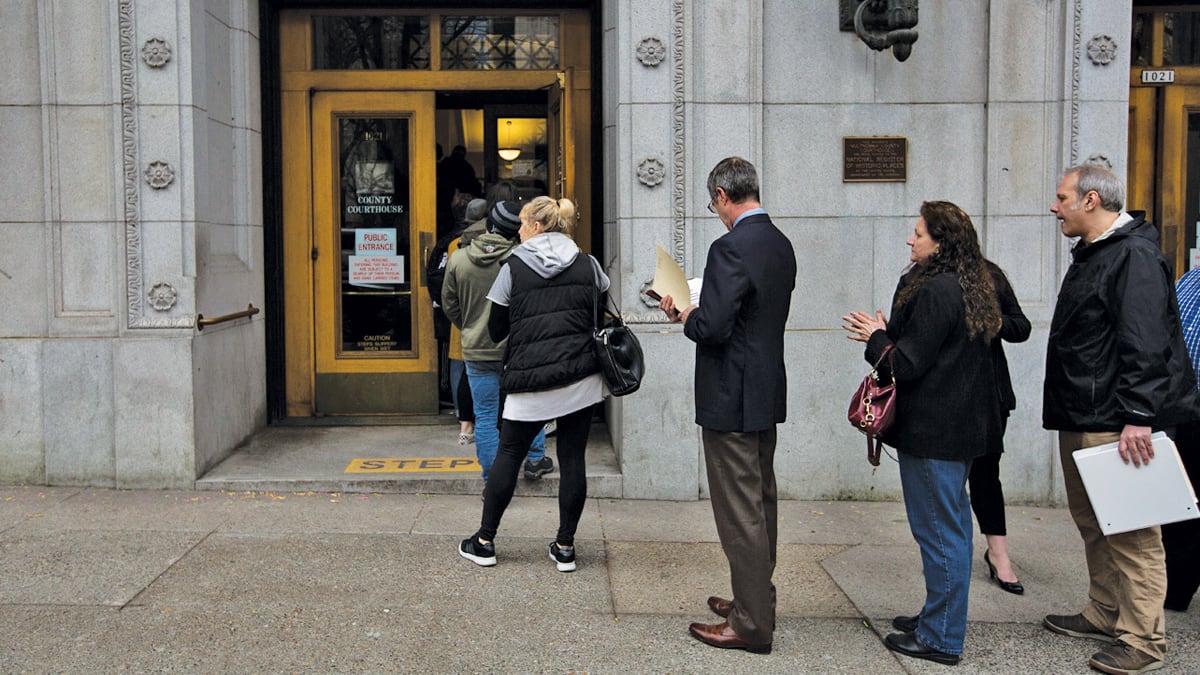Multnomah County prosecutors have been breaking an Oregon law for decades. After questions raised by a public defender and WW, they pledged to abandon the illegal practice.
District attorneys are required by state law to file a record with the court whenever a grand jury dismisses a felony charge. Before such a case can go to trial, grand jurors weigh its merits—and can declare the prosecutor doesn't have enough evidence by issuing what's called a "not a true bill" ruling. Prosecutors are required to record that decision.
Instead, Multnomah County prosecutors had been filing a standard "state unable to proceed" form, which is the document they file if they want to drop charges or wait until police gather more evidence before taking a case to court.
If a grand jury dismisses a case, prosecutors must get a court order to bring it before another grand jury. Defense attorneys say the prosecutors' practice made it possible for the Multnomah County District Attorney's Office to secretly bring cases before multiple grand juries without getting the required court order.
"Doing what you've described would be illegal and unethical without a court order," says Brent Weisberg, spokesman for the district attorney's office.
Autumn Shreve, a public defender, discovered the practice after sitting with a client outside of a grand jury proceeding in December. When the prosecutor emerged from the hearing, which Shreve and her client were not allowed to observe because it is secret, she told the defendant and Shreve the jury had declined to indict.
But Shreve could not find any indication of a "not a true bill" verdict in the court record following the decision. Turns out, there wasn't any official record of the grand jury's decision in this case or most others heard in Multnomah County for decades.
She challenged the prosecutors in a hearing, where they admitted they had not filed the records required by state law.
Prosecutors say they have fixed the problem.
"Last month, the Multnomah County District Attorney's Office learned that its long-standing practice of how to handle some 'not a true bill' cases was out of compliance with ORS 132.430," Weisberg says. "We have since aligned our policy and practice to adhere to the statute requirements."
An additional protection goes into effect later this year—under Oregon's new grand jury recording law, which takes statewide effect July 1, defendants should receive audio recordings of all grand jury proceedings if they are indicted.

